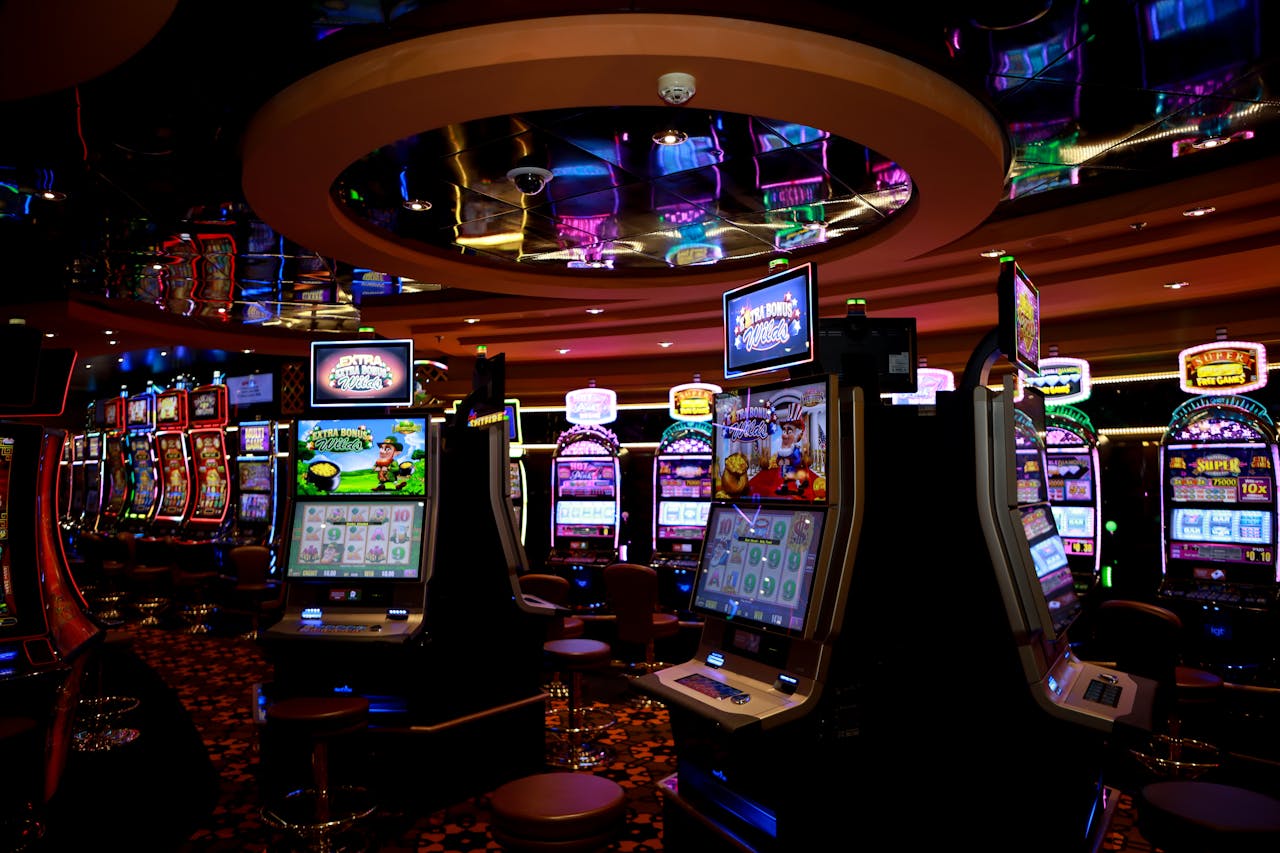PROVIDING YOU WITH ALL THE BEST BETS

Anyone who's ever visited gambling websites has seen at least once or twice a small percentage alongside the word "RTP"; I'm not exaggerating; those letters easily appear in most casino titles and articles.
But what does RTP actually mean? And why is that so important? Well, here I'll uncover the meaning behind those three letters and how they affect you while playing online.
What Does RTP Mean?
RTP stands for Return to Player, a measure used to determine how much you should expect to recover if you win a game.
For example, suppose I wagered £30 on a slot with a high RTP and managed to land various combinations. The money I got from those prizes should be enough to cover what I risked and maybe obtain a bit more to keep playing.
Where Can I Find the RTP?
Many punting sites show the RTP directly so visitors can inform themselves beforehand. I usually browse for the best UK operators at sites such as CasinoMeister in UK, where the listed ‘Best Online Casinos in the UK’ always show the RTP of each game title.
If a site doesn’t list the RTP, I simply search the internet or game to find the paytable or settings or visit the provider's website.
A High RTP Means Guaranteed Wins?
I want to make clear something, RTP is not related in any way to your odds of winning a prize. You could play for hours in a machine with 99% and still come empty-handed. It's all a matter of luck.
Many assume that a machine with high RTP must have better odds of winning, but it's more likely the other way around. If the RTP is high, the house will have to pay more to the visitors if they win, so it's not convenient that they win too often.
That's also why you will never find a machine with a 100% RTP ratio since that would mean that the house would only lose money each time someone played on it.
House Edge Vs. RTP
House Edge is a mathematical ratio used to determine how much the "house" or operator site will obtain from people whenever they gamble, making it the opposite of RTP.
You can deduce the House Edge of any machine using the RTP. For example, suppose you play and find a machine with a 96% ratio. The remaining 4% of that percentage will be the House Edge.
Like RTP, House Edge doesn't determine your odds of winning, but it can help you understand which matches or machines you are at a bigger disadvantage.
Where Does RTP Apply in Gambling?
Many newcomers believe that RTP only applies to online slots, and I understand why they would think that way. After all, this ratio is commonly featured in these machines and not much everywhere else.
However, the reality is that RTP is part of pretty much everything that involves gambling; here is a list of other activities where it's involved:
- Blackjack: 99.5%
- European Roulette: 97.3%
- French Roulette: 98.6%
- American Roulette: 94.7%
- Baccarat: 98.94%
- Video Poker: 97-99%
- Craps: 98% to 99.5%
Remember that these percentages may vary greatly depending on where and what you're playing. Sometimes, you find roulette or poker rooms with additional features or rules that can reduce or increase the total percentage.
Is Volatility The Same As RTP?
Although they're commonly shown together, volatility has little to nothing to do with RTP. What volatility determines is how frequently the prizes will appear and how good they will be compared to how much it took to get them.
If a slot has low volatility, then the prizes will appear somewhat often, but the rewards will be poor. In contrast, if it has high volatility, the prizes will be great and will take more time to appear.
RTP and Transparency: Can Providers Lie?
Now that I explained the basics of RTP, you might wonder if the amounts you see are true. After all, it does sound weird that these activities have ratios of 90% and more.
Well, let me assure you that all those ratios are 100% legitimate. This is because if they can't prove the ratios are correct, they won't get any job.
If an online provider wants to operate in the UK, it needs a licence from the UKGC (United Kingdom Gambling Commission). To do this, it has to prove its transparency and that people can win on their machines.
If the UKGC discovers false information about RTP or other elements, they could remove or deny their licence, leaving them unable to work with UK-based online sites.
Always Check The RTP, Even If You Might Not Win
As I stated before, RTP isn't related to the odds of winning. However, that doesn't mean you should ignore it, quite the contrary.
A machine with a very low RTP might not recover the money you wagered even after winning multiple prizes. Learning the RTP of each activity can help you decide if it's worth trying, so I highly recommend checking it out beforehand.

